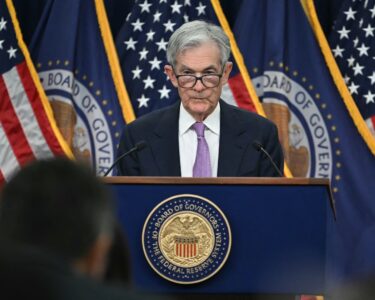Consumers showed unexpected strength in November, giving a solid start to the holiday season as inflation showed signs of continued easing.
Retail sales rose 0.3% in November, stronger than the 0.2% decline in October and better than the Dow Jones estimate for a decrease of 0.1%, the Commerce Department reported Thursday. The total is adjusted for seasonal factors but not inflation.
Excluding autos, sales rose 0.2%, also better than the forecast for no change. Stripping out autos and gas, sales rose 0.6%.
With the consumer price index up 0.1% on a monthly basis in November, the retail sales number shows consumers more than keeping up with the pace of price increases.
On a year-over-year basis, sales accelerated 4.1%, compared with a headline CPI rate of 3.1%. The inflation rate is still above the Federal Reserve’s 2% target but is well below its peak above 9% in mid-2022.
“The rebound in retail sales in November provides further illustration that the continued rapid decline in inflation is not coming at the cost of significantly weaker economic growth,” said Andrew Hunter, deputy chief U.S. economist at Capital Economics.
Sales held up despite a 2.9% slide in receipts at gas stations, as energy prices broadly slumped during the month. Gas station sales were off 9.4% on a 12-month basis.
That weakness was offset by an increase of 1.6% at bars and restaurants, a 1.3% gain at sporting goods, hobby, book and music stores, and a 1% increase at online retailers.
The so-called control group of sales, which excludes auto dealers, building materials retailers, gas stations, office supply stores, mobile homes and tobacco stores and feeds into calculations for gross domestic product, increased 0.4%.
In other economic news Thursday, the pace of layoffs slowed sharply last week.
Initial claims for unemployment insurance totaled a seasonally adjusted 202,000 for the week ended Dec. 9, a decline of 19,000 from the previous week and the lowest total since mid-October, according to the Labor Department. Economists had been looking for 220,000.
Both reports come the day after the Federal Reserve indicated that enough progress has been made in the inflation fight to start lowering interest rates next year. According to projections following the policy meeting of the Federal Open Market Committee, central bank officials expect to cut about 0.75 percentage point off short-term borrowing rates in 2024.
Though Fed officials expect economic growth to slow considerably in the year ahead, they do not foresee a recession.
Don’t miss these stories from CNBC PRO:






